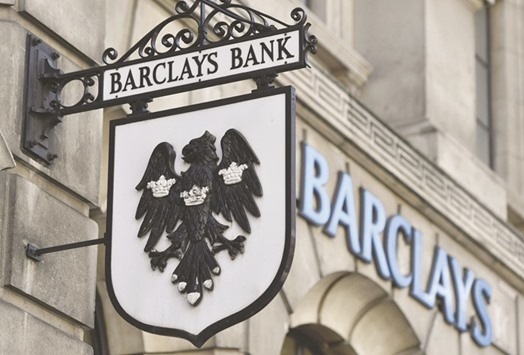It’s becoming increasingly difficult to insure UK bank bonds, just when debt protection is needed most.
Because post-crisis regulation requires the lenders to issue securities from parent holding companies, at least €114bn ($129bn) of notes are excluded from insurance coverage. Nonetheless, trading of credit-default swaps surged before today’s vote on Britain’s membership in the European Union.
UK banks are shifting funding from their operating companies to meet rules for loss-absorbing liabilities, which the derivatives don’t cover.
The mismatch shows that credit-default swaps have fallen behind the market they’re supposed to protect less than two years after a major overhaul to address flaws that prevented some holders from being compensated.
“Buying CDS on UK banks makes little sense,” said Sebastiano Pirro, a credit analyst at London-based hedge fund Algebris Investments, which oversees $4.5bn. “It’s a bad hedge against the risk to bank debt from the referendum.”
Credit-default swaps, designed to hedge against losses or speculate on credit quality, don’t cover debt sold by bank holding companies or their riskiest securities, known as additional Tier 1 bonds.
The contracts are “as precise as possible,” but “unanticipated events occasionally emerge that aren’t neatly covered by the definitions,” according to a statement from the International Swaps & Derivatives Association earlier this year. A spokesman declined further comment on the weaknesses in contracts covering UK bank bonds.
Barclays, HSBC Holdings, Lloyds Banking Group, Standard Chartered and Royal Bank of Scotland Group have collectively sold €85bn of holding-company debt and €29bn of AT1s, data compiled by Bloomberg show.
UK regulation requires banks to separate funding from operations and make it easier to write down debt in a crisis.
Senior bonds sold by holding companies could suffer losses if a bank fails, while debt of the operating companies will remain intact. AT1s, introduced after the financial crisis to shift the burden of future bank failure to creditors from taxpayers, and are the first to absorb losses.
“If you’re primarily exposed to the holding company bonds, then there is definitely a potential disconnect,” said Peter Green, a London-based partner at law firm Morrison & Foerster, who focuses on derivatives. If a contract “is written with the operating company as the reference entity, it wouldn’t be triggered by a credit event affecting purely bonds issued by the holding company.”
So far, the issue only applies to new debt of UK banks and the contracts may eventually be adapted, Green said.
Still, the discord may add to doubts about the insurance offered to bondholders through the $13tn credit-default swap market.
Greece’s debt restructuring in 2012 and the Dutch government’s seizure of lender SNS Reaal’s bonds in February 2013 prompted changes to credit-default swap contracts in 2014. The list of events triggering payouts was expanded to include bail-ins, where investors are forced by regulators or governments to contribute to bank rescues.
Holders of credit-default swaps suffered another defeat this year, when the updated contracts failed to pay out after the transfer of about 2bn euros of Novo Banco SA bonds to a bad bank that’s being liquidated.
“Novo Banco was one of the worst examples where an event happens to investors from an economic perspective and the CDS doesn’t cover you,” said Jochen Felsenheimer, the Munich-based managing director of XAIA Investment GmbH, which oversees €2.3bn of assets. “Imagine what happens in the case of a Brexit. I can imagine that there might be a bank restructuring.”
Britain’s referendum on EU membership remained too close to call as it entered its final day of campaigning. Different polls put each side ahead, though bookies and gamblers are increasingly convinced that voters will opt to stay.
The Markit iTraxx Europe Senior Financial Index of credit- default swaps on 30 banks and insurers dropped to 102 basis points on Wednesday from 115 basis points last week, when Brexit concerns pushed the contracts to the highest level in more than three months, according to data compiled by Bloomberg. The average cost of insuring UK bank debt also fell this week.
Trading volumes for the index remain elevated, with turnover on Wednesday about double the daily average, according to data compiled by Bloomberg.
“CDS can be a good tool to express a view,” said Sebastien Gothier, a fund manager at AG Insurance in Brussels. “But it’s a product that doesn’t reflect all the risks in the capital structure of banks.”

A Barclays sign hangs outside a branch of the bank in the City of London. Barclays, HSBC Holdings, Lloyds Banking Group, Standard Chartered and Royal Bank of Scotland Group have collectively sold u20ac85bn of holding-company debt and u20ac29bn of AT1s, data compiled by Bloomberg show.
